Last summer, in response to a call from Pope Francis to “take concrete actions in the care of our common home,” Fordham published the Laudato Si’ Action Plan.
The document set forth an ambitious seven-year plan for the University that touches on everything from facilities and curriculum to student involvement, all with the ultimate goal of combating climate change.
Just this month, Fordham received a $50 million grant from the Environmental Protection Agency that the University will use to team up with community partners to address the issue.
Below are a few of the sustainability-related efforts, developments, and accomplishments that took place in the final quarter of 2023. Look for more updates in 2024!
Facilities
Going Hybrid
On Oct. 23, three hybrid minivans, including a wheelchair-accessible minivan, joined the fleet of Fordham’s Ram Vans. They replace gas-powered minivans previously used for wheelchair-accessible requests, trips to the Calder Center, and charter trip services. The vans use less gas, produce less CO₂, and can run up to 560 miles on one tank of gas.
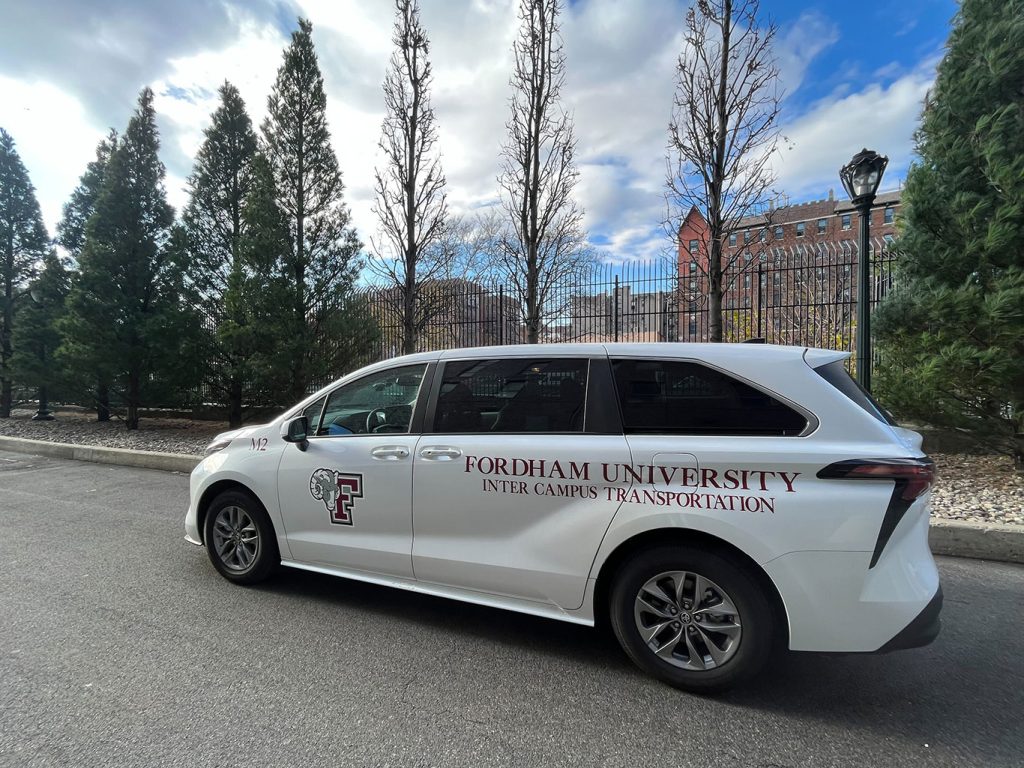
Dining
Micro Farms
This fall, Aramark installed vertical hydroponic units called Babylon Micro Farms at dining halls on the Lincoln Center and Rose Hill campuses. They grow fresh greens and herbs in a water-based solution (instead of soil, which requires frequent watering.) The greens are harvested for use in dining hall dishes and special student events.
Compared to traditional methods, each micro farm uses 96% less water, zero pesticides, 65% less fertilizer, and zero miles to transport. As a result, between January and June 2023, using them allowed Fordham to save 19,247 gallons of water, prevent 2.5 pounds of nitrogen from entering waterways, and reduce 32 pounds of food waste.
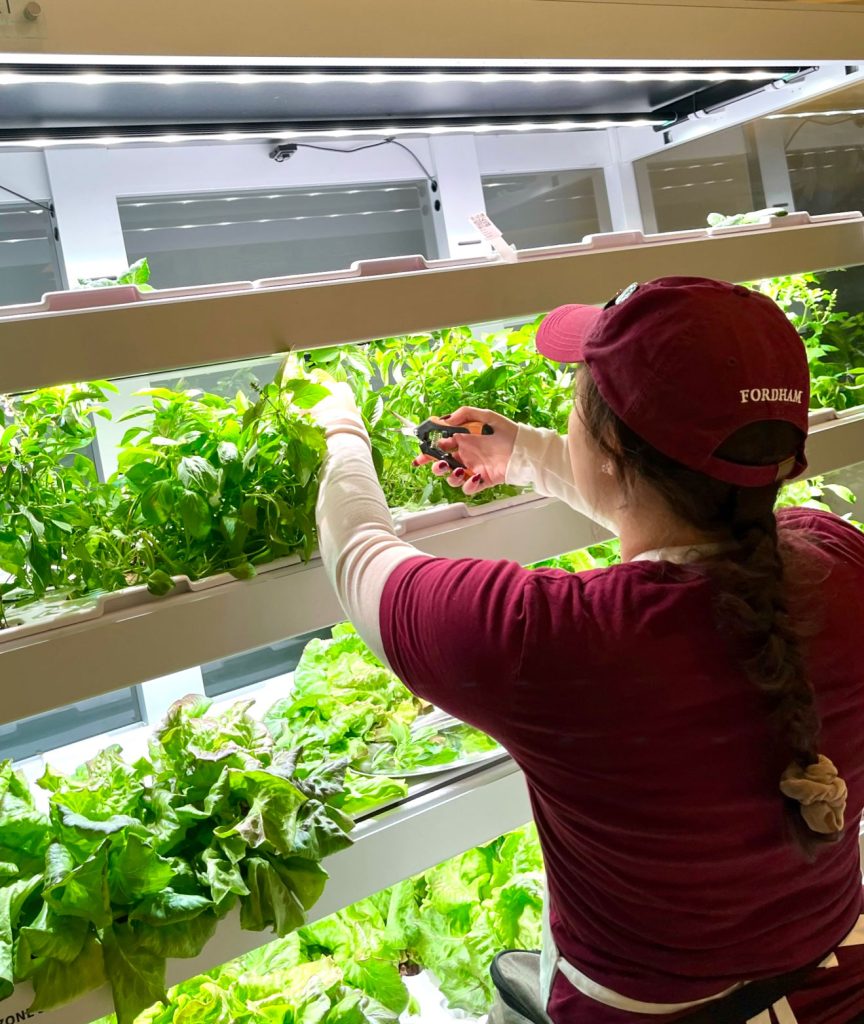
Academics
In the Classroom
Six undergraduate community-engaged learning classes offered in the Fall 2023 semester featured elements promoting sustainability: Anthropology of Food (Anthropology), Economics and Ecology of Food Systems (Economics), Thinking Visually (Visual Arts), Human Physiology (Biology), Consumer Behavior (Gabelli School of Business), and Leadership Integrated Project (Gabelli School of Business). At Fordham Law School, environmental law courses offered this semester included Environmental Law and Energy Law.
Fordham Law students wrote blog posts for the school’s Environmental Law Review on the Flint and Jackson water crises, NYC Local Law 97, the environmental damage caused by the fashion industry, and cell-cultivated meats.
Reading Laudato Si’
The Curran Center for American Catholic Studies held three seminars on Zoom this semester dedicated to reading Pope Francis’ encyclical Laudato Si’ and the 2023 follow-up, Laudate Deum. Visit the center’s website for more information on future seminars.
A Systems Approach
This semester, the Social Innovation Collaboratory and Career Center hosted a collaborative workshop on systems thinking, focused mainly on sustainability. The workshops, which were open to all undergraduate students, allowed them to explore the practice and application of systems thinking, which is rooted in a holistic approach to society’s more complex issues. The process is attractive to companies since it’s rooted in the idea of looking at complex problems with a new perspective. Contact Sadibou Sylla at the Collaborary for information on future workshops.
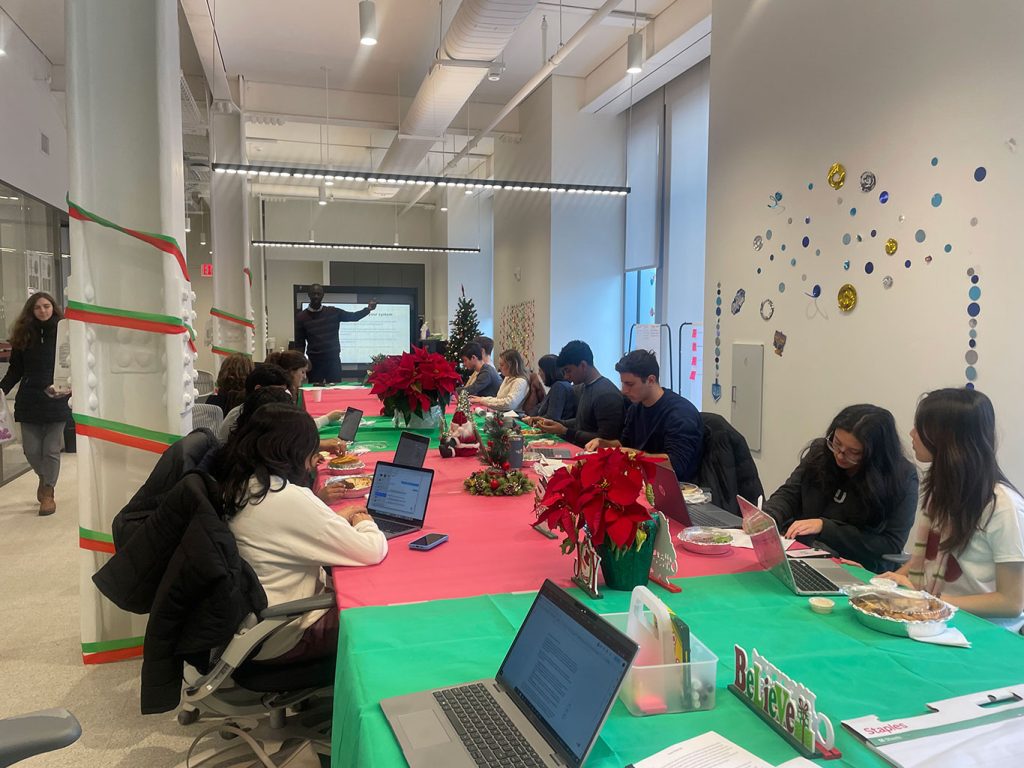
Students Take the Lead
Green Week: United Student Government sponsored Fordham College at Rose Hill’s Sustainability Week in November. It featured the Fordham Flea Pop-Up as well as a seminar on composting basics.
The Lincoln Center Environmental Club held a clean makeup tabling event on Nov. 30 to showcase the benefits of cruelty-free and clean makeup.
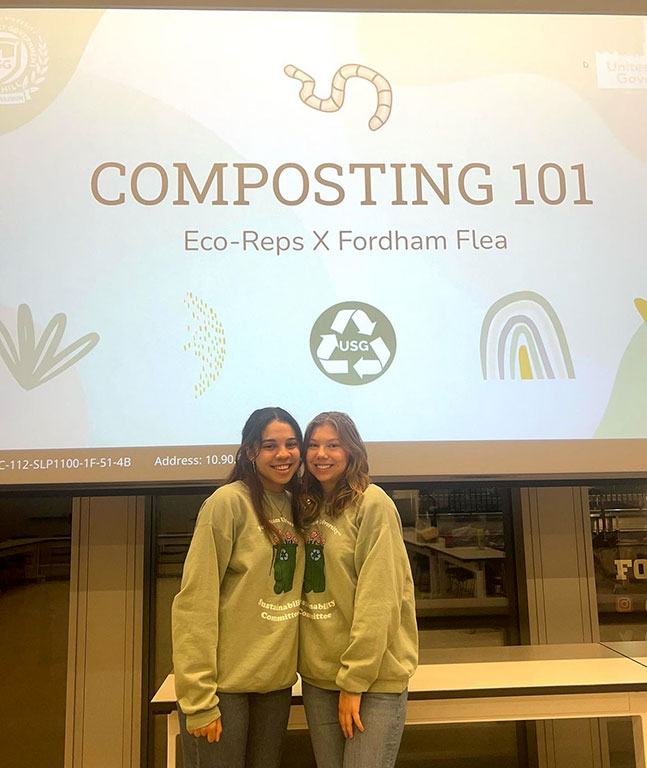
Community Engagement
As part of the Reimagine the Cross Bronx campaign, Fordham staff conducted weekend “walkshops” in the neighborhoods surrounding the highway. Funding came from a $25,000 grant from the New York City Department (DOT) that the Center for Community Engaged Learning received in October.
Fordham staff and students also held special Halloween and Thanksgiving-themed events at the Highbridge Farmers Market and community space, which was recently expanded thanks to an AARP grant.
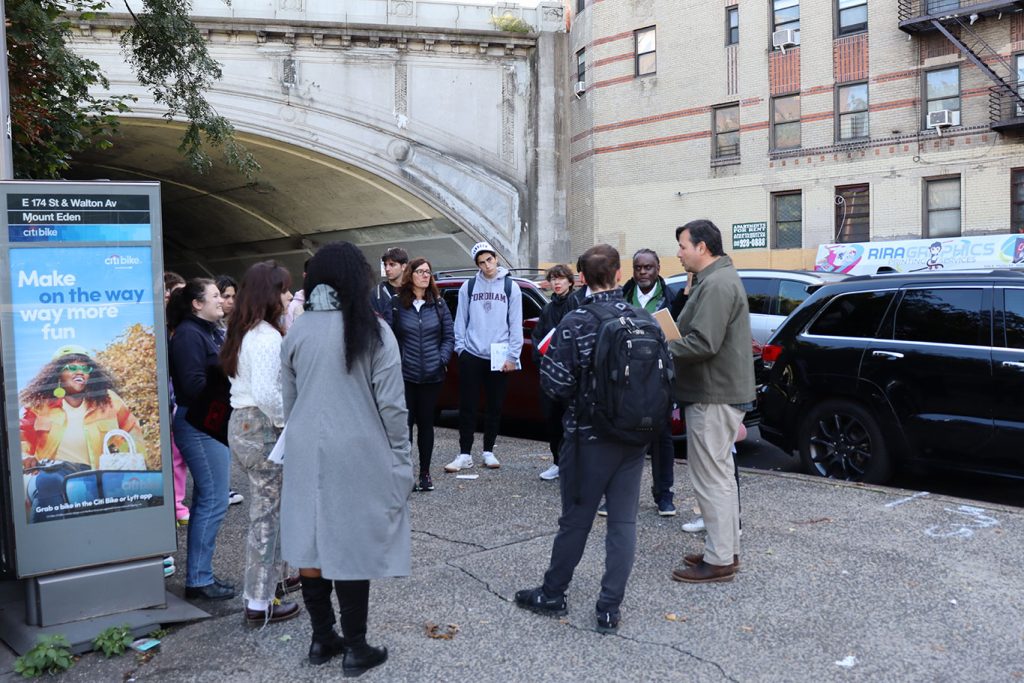
Faculty News
Marc Conte, Ph.D., professor of economics, published “Unequal Climate Impacts on Global Values of Natural Capital” in the journal Nature.
Stephen Holler, Ph.D., associate professor of physics, published “Education for Environmental Justice: The Fordham Regional Environmental Sensor for Healthy Air,” in the journal Social Sciences.
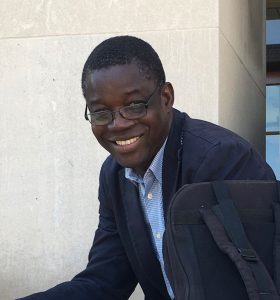
David Gibson, director of the Center for Religion and Culture (CRC), received $84,840 from the Porticus Foundation for the annual conference The Way Forward: Laudato Si’, Protecting Our Common Home, Building Our Common Church. The conference will take place in February at the University of San Diego.
Isaie Dougnon, Ph.D., associate professor of French and Francophone Studies and International Humanitarian Affairs, received $24,790 from the Wenner-Gren Foundation for research based on a local perspective on water and migration in West Africa.
Alumni
Giselle Schmitz, GSAS ’22, spent this fall working with the Coral Triangle Center in Bali, Indonesia—a nonprofit that connects governments, corporations, and local groups to help strengthen marine resources in the region.
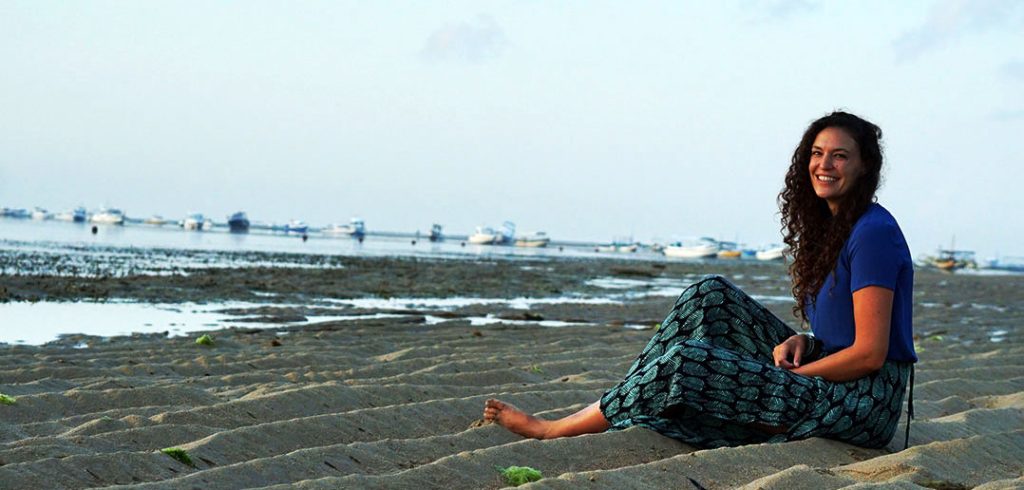
In Case You Missed It
It was a busy fall in terms of sustainability efforts! Here are some stories Fordham News covered that you may have missed: In October, the annual Fordham Women’s Summit focused on sustainability. In our theology department, a lecture for first-year students featuring Union Theological Seminary professor John J. Thatamanil connected religious supremacy to the destruction of the natural world. Four students have joined the Office of Facilities Management’s newly created internship program, while alumni are helping protect New York City’s birds and helping farmers adapt to climate change. The Gabelli School of Business hosted two Nobel Laureates at a conference on ESG. At the Law School, more than 20 students gathered in Central Park for a clean-up event for the annual Public Service Day, while alumna Melinda Baglio was honored for being a changemaker in the clean energy field.
Upcoming Events
Faculty Happy Hour: Sustainability and Environmental Justice
Open to all faculty interested in sharing ideas about sustainability.
Thursday, Jan. 18, 2024. RSVP: Julie Gafney, [email protected]
STEM Career Fair, Thursday, Feb. 15, Great Hall, Rose Hill Campus. Visit the Fordham Career Center next month for details.
Women of Color in STEM Career Panel, Wednesday, Feb. 28, Virtual. Visit the Fordham Career Center next month for details.
Social Impact and Non-Profit Micro-Fair, Thursday, March 14, 12th Floor Lounge, Lowenstein Center, Lincoln Center campus. Visit the Fordham Career Center next month for details.
Save the Date:
Climate Action Summit with President Tetlow: April 8, Rose Hill Campus
We’d Love to Hear From You!
Do you have a sustainability-related event, development, or news item you’d like to share? Contact Patrick Verel at [email protected].
]]>“The laws exist,” said Giselle Schmitz, GSAS ’22, “but the economics really drive these races for resources.”
The conservation-minded researcher arrived in Bali, Indonesia, in August to work with the Coral Triangle Center, a nonprofit that connects governments, corporations, and local groups to help strengthen marine resource management in the region. Two big questions drive her work, she said: “How can a community be supported in the management of their own resources, and how can we reduce the outside stressors on those resources coming from countries that may have an exploitative interest?”
Schmitz was placed at the Coral Triangle Center after earning a Luce Scholarship, a prestigious award that gives early-career leaders an immersive professional experience in Asia. It marked the second fellowship she’s earned since graduating from Fordham’s international political economy and development (IPED) master’s degree program in 2022.
Finding a ‘Perfect Fit’ at Fordham
A California native and longtime scuba diver, Schmitz said protecting the oceans has always been a key part of her career goals. After majoring in English and minoring in biology at Walla Walla University in Washington, she earned a law degree at the University of Oregon, where she studied with Professor Richard Hildreth, who had been instrumental in passing several key environmental protections in the U.S.
After law school, she joined the Peace Corps to gain the kind of global experience she felt would be essential to environmental work, especially as rising sea levels and other effects of climate change permeate international borders. She was teaching at Gansu University of Political Science and Law in Lanzhou, China, in February 2020 when the COVID-19 outbreak cut short her time there.
That’s when Schmitz discovered the Fordham graduate program. She had been looking for a way to continue her global education in the U.S., and the IPED program was a “perfect fit,” she said, not only because it participates in the Paul D. Coverdell Fellows program, which provides financial assistant to returning Peace Corps volunteers, but also because it equips students—with classes like Econometrics and Development Economics—to work on complex issues in the face of competing interests.
Global Fellowships and Local Action
Schmitz said another highlight of her Fordham experience was working with the Office of Prestigious Fellowships, which helps students and alumni apply for funding and scholarships like the Fulbright and Truman. These prestigious fellowships allow them to pursue research and find innovative solutions to complex societal challenges, from marine resource management to subway accessibility.
With the support of the prestigious fellowships office—plus IPED program director Henry Schwalbenberg, Ph.D., and program manager Donna Odra—Schmitz applied for and earned a John A. Knauss Marine Policy Fellowship in 2022, the year she completed the Fordham program. She worked in the Office of Science and Technology at the National Oceanic and Atmospheric Administration (NOAA), part of the U.S. Department of Commerce. For a year, she studied how community-based research can help the government manage fisheries “in a way that makes sense for the ecosystem, including the [people] that depend on it.”
And while her research has brought her across the world to promote sustainable development, Schmitz believes that we can all find inspiration and take action closer to home.
“Finding those pieces to continue to be inspired by is so important, because otherwise, climate looks like a monumental challenge,” Schmitz said. “I think keeping hope active comes from those small actions, those tangible steps you can take.”

“We are always so proud of our applicants. As they will tell you, the process of applying for awards requires a great deal of introspection and also the ability to share their visions with others. And while we recognize and applaud their success, great discoveries are made through the process,” said Marisa Iglesias, Ph.D., interim director of the Office of Prestigious Fellowships. “I am so impressed by the Fordham students and alumni who worked with the Campion Institute to achieve their goals. It’s a joy to celebrate them at this time of the year.”
As of May 20, Fordham undergraduates, graduate students, and alumni have received 52 prestigious awards this year, including seven Fulbrights, one Critical Language Scholarship, and three National Science Foundation Graduate Research Fellowships. In addition to the winners, 13 scholars were named as finalists, semi-finalists, and alternates for prestigious awards, including one Marshall Scholarship finalist. Additional awards will be announced this summer.
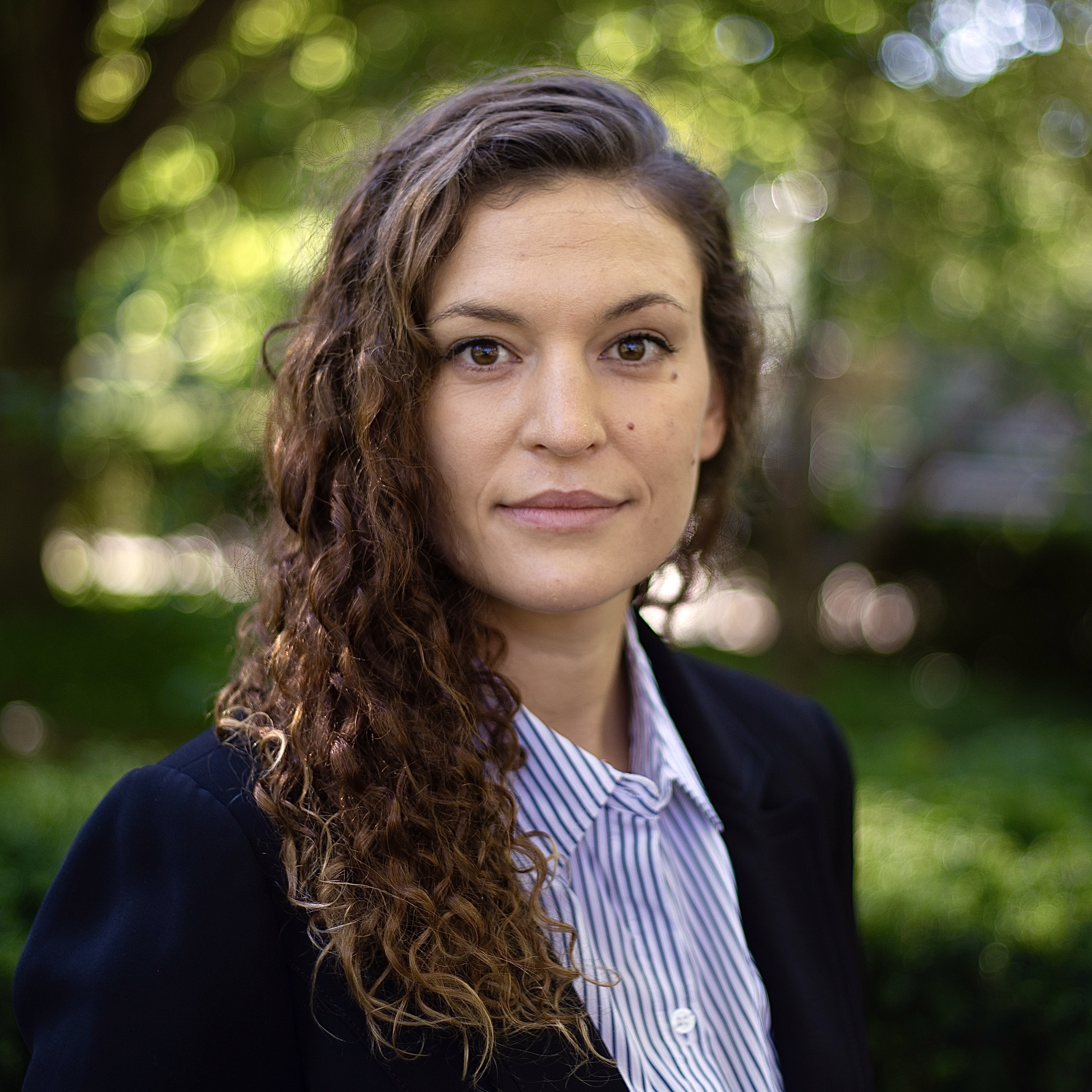
Giselle Schmitz, a Peace Corps Coverdell Fellow who earned her master’s degree in international political economy and development last February, won the John A. Knauss Marine Policy Fellowship. In a year-long fellowship at the National Oceanic and Atmospheric Administration’s Office of Science and Technology, Schmitz is supporting sustainable fisheries management and learning how policy interventions can be most effective in the marine sciences.
“Fisheries are important for a myriad of reasons. They support nutrition security worldwide as an important source of protein and they’re vital for a healthy ecosystem,” said Schmitz, a California native who started the fellowship in Maryland last February.
Schmitz said she plans on using her Fordham education—and her law degree from the University of Oregon, where she learned about policymaking in relation to marine resources—to help protect the environment.
“Fordham was a timely and wonderful experience for me. I had the opportunity to apply to their Coverdell Fellowship as a returning Peace Corps volunteer. Through the Coverdell Fellowship and the IPED program, I was able to dig deeper into quantitative methods and studies and examine the economic side of my legal research,” Schmitz said. “In the future, I hope to work in conservation criminology and study sustainable fisheries and marine protected areas.”
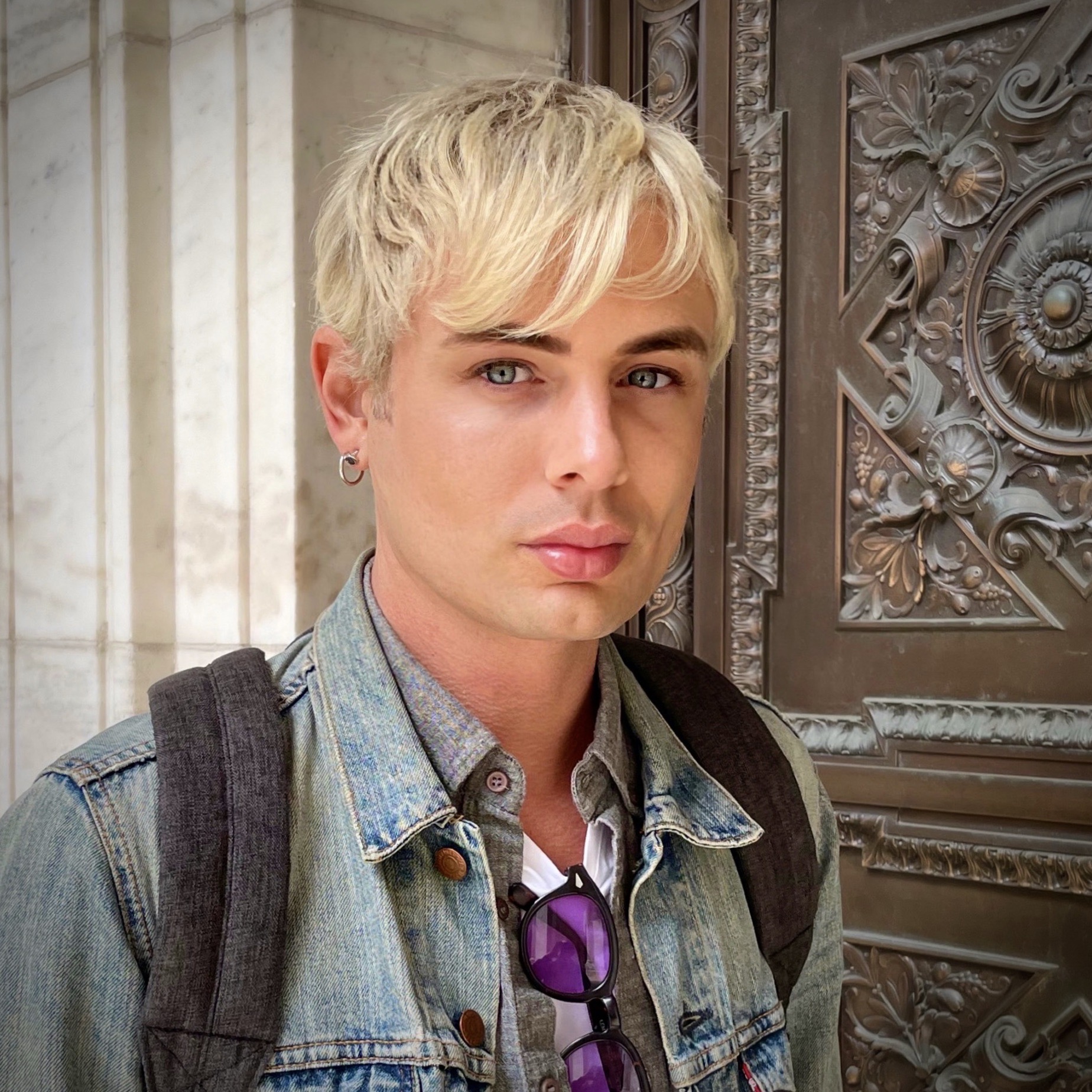
Jason Ray, a doctoral student in English, won a Fulbright Research Award to the United Kingdom. Starting in September, he will study how medieval texts illuminate early Welsh people on their own terms, instead of as the subjects of English and Norman elites. “Wales is often considered to be England’s first colony. Since the Saxons invaded, the Welsh have been subject to xenophobia, displacement, subjugation, and exploitation,” Ray said. “I want to contribute to the critical conversations about identity, race, and colonization in this period and place.”
Ray, a Georgia native, has a bachelor’s degree in theater studies from Yale University and a master’s degree in medieval and renaissance studies from Columbia University. When he realized that what he really loved about theater was not so much performing, but dissecting Shakespeare’s English, he returned to school with a renewed interest in the history of the English language.
“That set me on this trajectory of going backwards in time until I reached Old English. And I couldn’t help but also think about the story behind its development, which is where literature and history come in. I went down a rabbit hole, and I haven’t come up yet. I feel a little bit like Alice in Wonderland,” he said, laughing.
Ray said that someday, he wants to conduct research and teach as a professor. “Pedagogy is a huge part of our training at Fordham. At the same time, the school insists on rigorous research,” he said. “Fordham is really preparing me for a career in academia.”
As of May 20, prestigious awards received this year include:
- In addition to Jason Ray, six Fulbright awards: Evan Allen, FCRH ’21, to Kazakhstan; Megan Brady, FCRH ’13, to Bosnia; Tauland Kaca, FCLC ’21, to Germany; Kristina Lazdauskas, FCRH ’21, to Lithuania; Christopher Myers, GSAS ’18 and current doctoral candidate, to Germany; and Tammen Nicholson, GSAS ’20, to Lesotho
- Critical Language Scholarship: Dominique Valentine, FCRH ’22
- National Science Foundation Graduate Research Fellowships: William Beatrez, FCRH ’19; Kathryn Belcher, FCRH ’21; and Morgan McGrath, FCRH ’22
- U.S. Presidential Management Fellowships: Hannah Babiss, GSS ’21; Ellie Bauer, GSAS ’22; Adam Brasher, GSAS ’22; Jessica Dunston, GSS ’22; Dhan Gurung, GSAS ’21; Jacob Olson, GSAS ’21; Kevin Strohm, GSAS ’22; and Courtney Vice, LAW ’22
- International Atomic Energy Agency Internship: Victor Sapkota, GSAS ’21
- American Psychological Foundation/Council of Graduate Departments of Psychology Scholarship: Okeoma Nwakanma, GSAS ’22
- St. Gallen Wings of Excellence Awards: Giselle Schmitz, GSAS ’22, and David Woodside, GSAS ’23